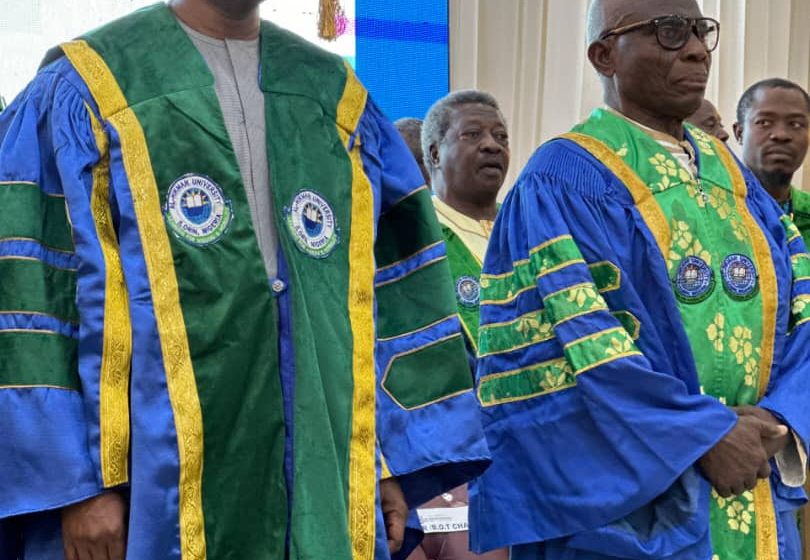IThe Speaker of the House of Representatives, Rt. Hon. Abbas Tajudeen, has emphasized the importance of economic diversification in ensuring Nigeria’s stability, job creation, and sustainable development.
Speaking during the 14th Convocation Lecture of Al-Hikmah University, Ilorin, on Monday, Hon. Tajudeen highlighted the Federal Government’s ongoing reforms to achieve economic transformation.
Delivering a lecture titled, “Beyond Oil: Exploring Alternative Revenue Potentials for Economic Growth and Sustainable Development in Nigeria,” the Speaker commended President Bola Ahmed Tinubu for prioritizing diversification through bold initiatives such as the removal of fuel subsidies and the introduction of Compressed Natural Gas (CNG) programs.
Hon. Tajudeen outlined critical sectors that could drive diversification, including agriculture, agro-industrialization, ICT and the digital economy, creative industries, tourism, human capital development, and infrastructure.
He stressed the need for collective responsibility, noting that economic transformation requires the active participation of the government, private sector, academia, and citizens.
“The government must lead with visionary policies, transparent governance, and strategic investments in infrastructure and education,” he said “Parliament must enact enabling legislation and ensure rigorous oversight of policies and programs aimed at economic diversification.”
He also charged universities to strengthen collaboration with industries to foster innovation and entrepreneurship, while urging the private sector to invest in emerging industries, support small and medium enterprises, and leverage technology to boost productivity.
“Youths and all Nigerians must seize opportunities in entrepreneurship, agriculture, digital technology, and creative industries to redefine Nigeria’s economic narrative,” Hon. Tajudeen stated.
The Speaker drew inspiration from Malaysia and Singapore, citing their alignment of government policies, academic research, and private-sector innovation as a model for Nigeria’s transformation.
On the role of the House of Representatives, Hon. Tajudeen disclosed that 98 motions have been introduced to address economic challenges, focusing on restructuring key sectors, bolstering agriculture, and restoring investor confidence. In addition, he noted that House committees have conducted oversight visits to over 107 ministries in the past 18 months to ensure transparency and accountability in project implementation.
He also listed challenges to economic diversification, including institutional weaknesses, infrastructural deficits, corruption, and global economic pressures such as fluctuations in commodity prices and geopolitical tensions. However, he expressed optimism about Nigeria’s potential, citing the country’s vast mineral resources, including gold, limestone, bitumen, and over 450 documented minerals in commercial quantities.
Hon. Tajudeen concluded by stressing the importance of effective implementation of diversification strategies through continuous legislative monitoring, particularly by using tools such as the public accounts committee to ensure funds allocated for diversification projects yield measurable outcomes.
The convocation lecture reinforced the need for all stakeholders to unite in advancing Nigeria’s economic diversification agenda.



Leave a Reply